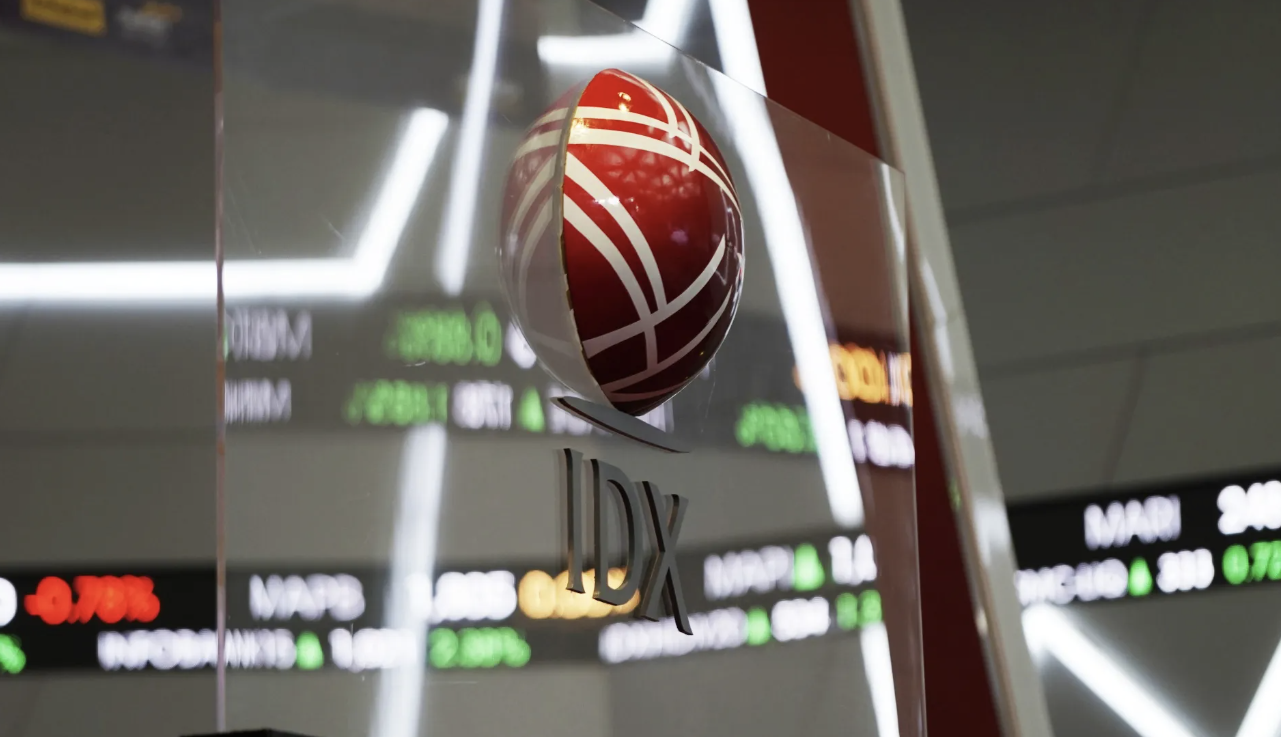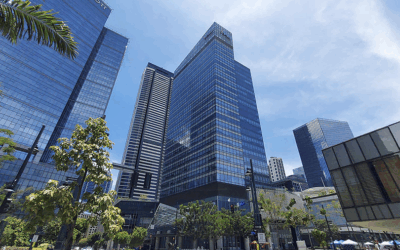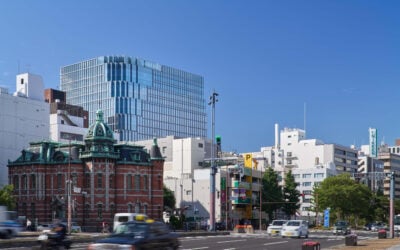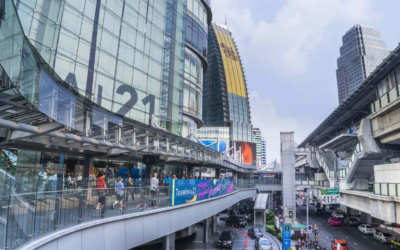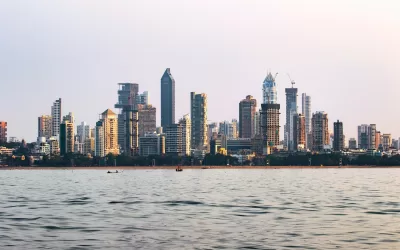Indonesia, the largest economy in Southeast Asia, offers a wealth of opportunities for investors looking to tap into its vibrant stock market.
With a population of over 270 million and a rapidly growing middle class, the country’s economic potential is undeniable.
The Indonesian Stock Exchange (IDX) has seen significant growth in recent years, making it an attractive option for both local and foreign investors.
However, navigating Indonesia’s stock market as a foreigner requires plenty of preparation and understanding of the local regulations.
In this guide, we’ll walk you through all the steps to effectively trade stocks in Indonesia – including but not limited to opening a brokerage account and market risks.
Why Trade Stocks in Indonesia?
Indonesia’s stock market has been on an upward trajectory, supported by a growing economy and increasing investor participation.
The IDX is one of Southeast Asia’s largest stock exchanges, with over 750 listed companies as of 2025.
Indonesia also boasts one of the fastest membership growth rates in the region, with the number of stock investors jumping from 2.5 million back in 2019 to above 8 million in 2025.
Moreover, the IDX has shown resilience, consistently ranking within the top ten globally in terms of newly-listed companies, and recording the highest daily trading frequency in its history during the same year.
Indeed, the Indonesian stock market is a diverse one, offering opportunities across various sectors from consumer goods to natural resources.
All of these factors makes Indonesia a rather compelling choice for portfolio diversification.
Step 1: Know the Basics of the Indonesian Stock Market
The Indonesian Rupiah
Before diving into the stock market, it’s important to understand the local currency, the Indonesian Rupiah (IDR).
The Rupiah has faced significant depreciation over the years, with a decline of 60% against the US dollar in the past decade. As of now, the exchange rate stands at approximately 16,000 IDR to 1 USD.
While this depreciation can be a challenge, it also presents opportunities for investors who are able to manage currency risks effectively.
Market Structure
The IDX was formed in 2007 through the merger of the Jakarta Stock Exchange and the Surabaya Stock Exchange. It operates as a unified platform for trading equities, bonds, and derivatives.
As Indonesia’s largest stock exchange, the IDX is very closely regulated by the Financial Services Authority (OJK) to help ensure transparency and fair trading practices.
Step 2: Opening a Brokerage Account
Foreign Residents in Indonesia
If you are a foreigner residing in Indonesia with a valid resident permit (KITAS), you can directly open a securities account with an Indonesian brokerage.
The process involves submitting necessary documentation, completing an agreement, and depositing funds into your account.

Indonesia is among one of a few countries in Asia with positive demographic trend; the country’s population growth and the urbanization create a solid foundation for its economic stability.
Most brokers in Indonesia provide access to online trading platforms, making it convenient to monitor and execute trades.
For Non-Residents
For non-residents, accessing the Indonesian stock market can be more challenging. Without a KITAS, it is difficult or even impossible to open a local brokerage account.
However, you can still trade Indonesian stocks through an Asian brokerage account based in nearby financial hubs like Singapore or Hong Kong.
These international brokers in Indonesia often provide access to the IDX, allowing you to participate in the market without being physically present in Indonesia.
Step 3: Funding Your Account
Once your brokerage account in Indonesia is set up, the next step is to fund it. Most brokers accept deposits in both Indonesian Rupiah and major foreign currencies li
Keep in mind that, when buying offshore stocks, you aren’t merely investing in a company. You’re also making a bet on the future of the currency its shares are denominated – in this case the Indonesian Rupiah.
As such, be aware that currency exchange rates can significantly impact your investment returns. It’s wise to monitor forex trends and consider hedging strategies if necessary.
Step 4: Choosing Stocks in Indonesia
Indonesia’s stock market offers a wide range of investment opportunities, from blue-chip companies to smaller, high-growth firms.
The IDX Composite Index (IHSG) serves as the benchmark index, tracking the performance of all listed companies. For beginners, focusing on well-established sectors such as banking, telecommunications, and consumer goods can be a good starting point.
Additionally, Indonesia is rich in natural resources, and its mining sector continues to attract significant investor interest.
Conduct thorough research and consider diversifying your portfolio to balance risk and reward.
Step 5: Placing Trades
Trading stocks in Indonesia is similar to trading in other markets. Once you’ve identified the stocks you want to buy, you can place orders through your broker’s platform.
Common order types include:
- Market Orders: Buy or sell a stock at the current market price.
- Limit Orders: Set a specific price at which you’re willing to buy or sell a stock.
- Stop-Loss Orders: Automatically sell a stock if its price drops below a certain level, minimizing potential losses.
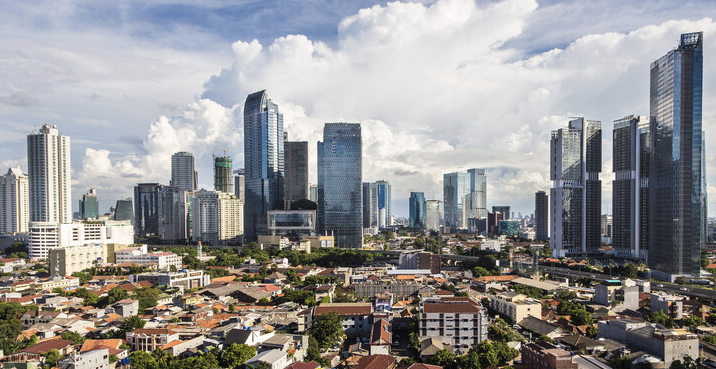
Telecom and mining sectors are worth considering for investors looking to buy Indonesia stocks. A large proportion of companies in these sectors are included in the IDX Composite Index.
Many brokers also offer tools and analytics to help you make informed decisions. Be sure to take advantage of these resources.
Step 6: Taxation and Fees
When trading in Indonesia, be aware of the associated taxes and fees. They generally aren’t very high but it’s worth knowing about.
The IDX charges a transaction fee of 0.04% of the trade value, and there is also a capital gains tax on profits. This can vary based on your own specific case.
It’s perhaps worth consulting with a local tax advisor to understand how these taxes apply to your situation – especially if you’re buying Indonesian stocks from abroad. You’ll need to factor in your home country’s taxes in that case.
Challenges and Risks in Indonesia
While trading stocks in Indonesia does offer plenty of opportunities, the market certainly isn’t without challenges.
The Indonesian market’s emerging status means it can be volatile compared to developed markets.
On top of that, the Rupiah’s long-term trend of depreciation and numerous political risks, such as regulatory changes, can impact investment returns.
However, for those willing to navigate these problems, Indonesia’s stock market remains an attractive option for long-term growth and diversification.
Should You Even Invest in Indonesia?
Trading stocks in Indonesia can be a rewarding experience for investors who are prepared to understand the market’s nuances and manage its risks.
Whether you’re a foreign resident with a KITAS or an international investor accessing the IDX through an offshore brokerage, the key to success lies in diligent research and a well-thought-out strategy.
Don’t get us wrong: as a whole, Indonesia’s rising stock market offers plenty of opportunity for those looking to tap into Southeast Asia’s largest economy.
Feel free to take the plunge, but do remember: informed decisions are the foundation of a successful offshore investment in Indonesia.
FAQs: Buying Indonesia Stocks
Why Should I Buy Stocks in Indonesia?
Indonesia, the largest economy in Southeast Asia, offers significant investment opportunities with its growing economy and expanding middle class.
As of 2025, The Indonesian Stock Exchange (IDX) has over 750 listed companies and has shown resilience with rapid growth in investor participation. The market provides diverse investment options across sectors like consumer goods, telecom, and natural resources.
How Can I Open a Brokerage Account in Indonesia as a Foreign Investor?
If you’re a foreigner residing in Indonesia with a valid resident permit (KITAS), you can directly open a securities account with an Indonesian brokerage.
This requires submitting necessary documents, completing an agreement, and depositing funds. For non-residents without a KITAS, opening a local brokerage account is challenging, but you can still access the IDX through Asian brokers based in financial hubs like Singapore or Hong Kong.
What Sectors Should I Focus on When Picking Indonesian Stocks?
Indonesia’s stock market offers a wide range of opportunities, with the IDX Composite Index serving as the benchmark. Key sectors to consider include banking, telecom, consumer goods, and mining.
The mining sector, in particular, attracts significant investor interest due to Indonesia’s rich natural resources. Likewise, consumer goods are a focus because of Indonesia's massive population of nearly 300 million people.

